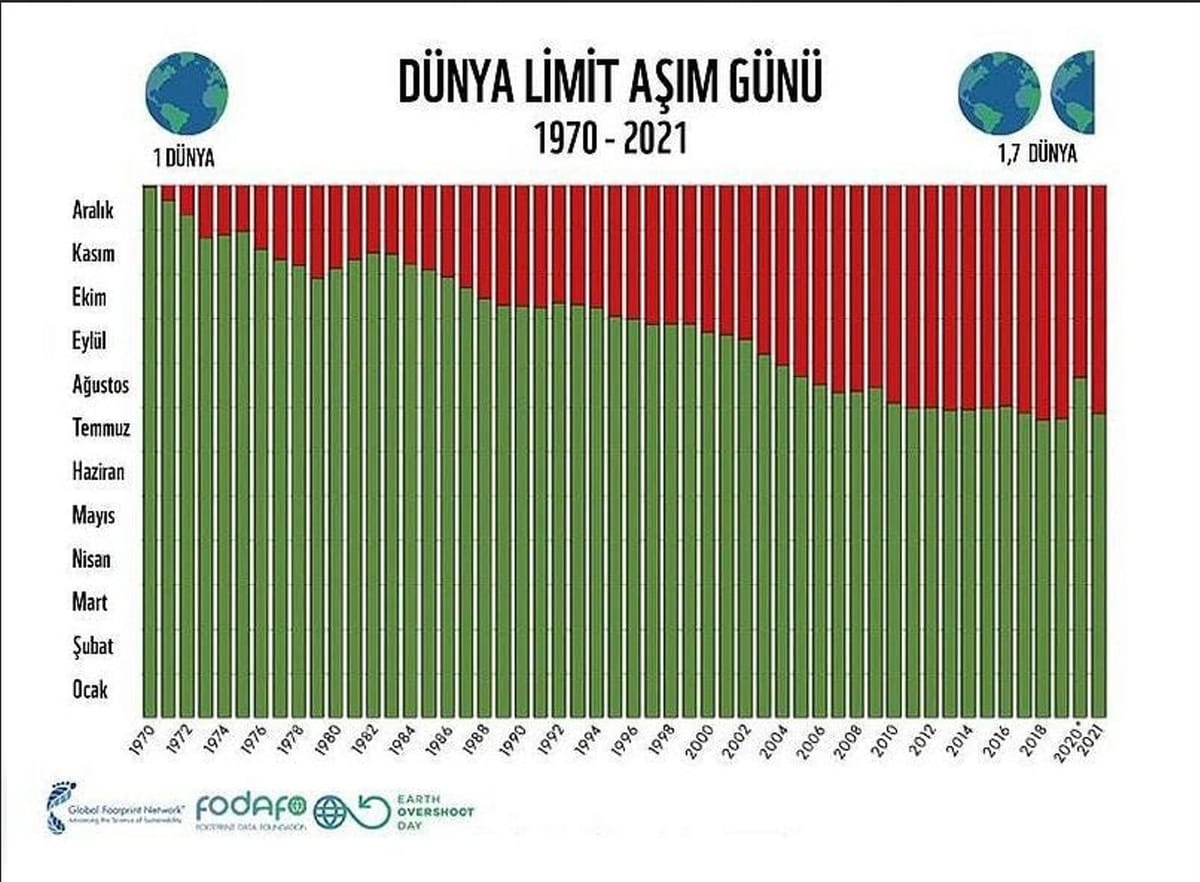Conscious consumption requires us to consider the contributions of our consumption habits to nature, other people, and the economy while fulfilling our needs. It means aligning our consumption habits with eco-friendly choices in the context of questions like: How do we travel? How do we shop? Where and how do we live?
Knowing that a pair of jeans consumes 10,800 liters of water to be produced, understanding the carbon footprint of our flights, and being aware of the recycling times of materials like glass and plastic are the first steps toward conscious consumption. This is because change begins with knowledge. As consumers demand products and services that cause less harm to people and the environment, the supply of such items will increase.
World Overshoot Day, which shows the impact of our consumption habits on the planet, is occurring earlier each year. World Overshoot Day marks the date when humanity has consumed the natural resources the Earth can regenerate in one year. Excluding 2020 due to the pandemic, this date has been getting earlier each year. In 2021, it occurred on July 29.
World Overshoot Day is directly proportional to the duration of the product consumption cycles. As our consumption increases, the depletion of the Earth's limited resources in the production processes of the products we consume also accelerates. The reduction of resource depletion is directly related to conscious consumption habits. When conscious consumers demand more eco-friendly products, it prompts global authorities and governments to increase the availability of these sustainable options, thus benefiting both the environment and humanity. In recent years, we have seen examples of this, such as the Paris Agreement, the Kyoto Protocol, and the United Nations Environment Programme.
Eco-friendly products are also known as green products. The importance of these green products has been steadily increasing. This is mainly due to international agreements like the ones mentioned above, which have brought the issue to the attention of governments, raised public awareness, and influenced consumption habits towards greener choices.
When we analyze global and Turkish media, we frequently see environmental news and brands prioritizing the planet. This is encouraging news for us, as it shows the power of consumers to make a difference.
Another significant aspect of conscious consumption is ensuring the recycling of the products we consume. By recycling the products we use, we extend the lifespan of resources.
Understanding the resources consumed by the products before they reach us can help us make more conscious consumption choices.
![[object Object]](https://umsousercontent.com/lib_DKncpfeMTJhtyniL/x3cw8lp6hx6flgmw.png?w=400)
